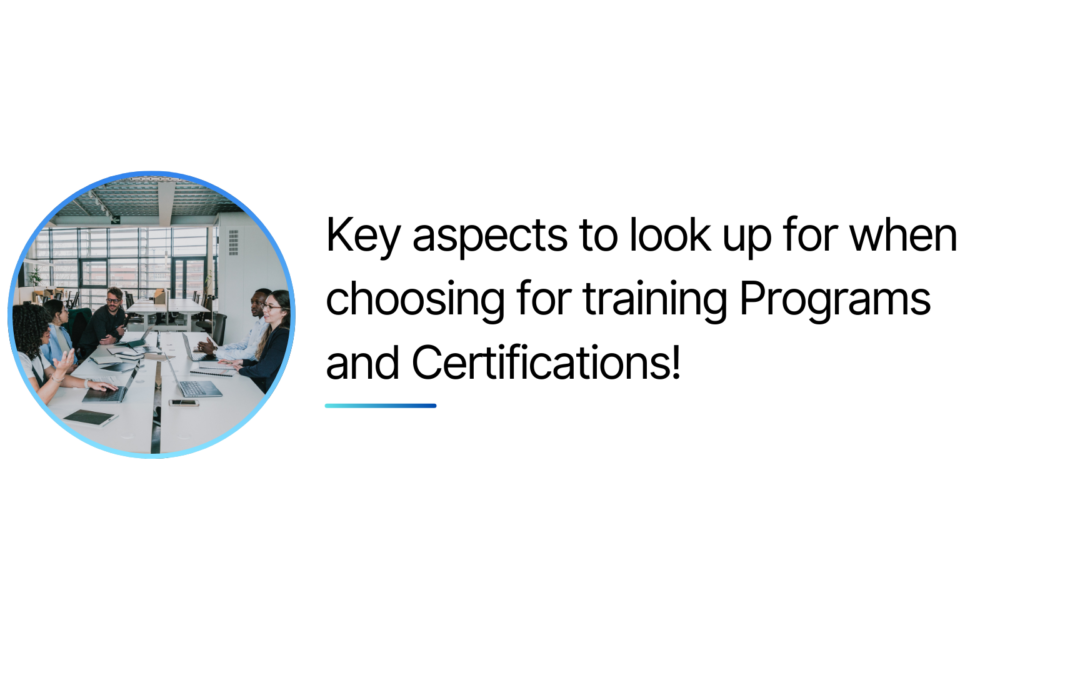In the intricate and highly competitive landscapes of accounting and finance, the pursuit of continuous professional development stands as a cornerstone of career advancement. The selection of appropriate training programs and certifications transcends mere credential acquisition; it represents a strategic investment in one’s future. With the industry’s rapid evolution, driven by technological innovations and shifting regulatory frameworks, professionals must meticulously evaluate available options to ensure alignment with their career aspirations and the demands of the market. This article aims to provide a comprehensive guide, highlighting the critical aspects to consider when choosing accounting and finance training programs and certifications, thereby empowering individuals to make informed decisions that yield substantial returns.
Defining Your Professional Trajectory in Accounting and Finance
Before embarking on any training or certification journey, a thorough introspection into one’s professional trajectory is paramount. This involves a granular analysis of current skill sets, an articulation of desired career milestones, and an understanding of the evolving demands of the accounting and finance sectors. Professionals must discern whether their aspirations lie in public accounting, corporate finance, investment analysis, or specialized domains such as tax or audit. By aligning training and certification choices with these clearly defined objectives, individuals can ensure that their investments directly contribute to their long-term career growth.
Evaluating the Pedigree and Expertise of Training Providers
The selection of a training provider should be approached with meticulous scrutiny. The provider’s reputation, industry affiliations, and the caliber of its instructors are critical indicators of program quality. Prospective students should seek providers with a proven track record of success, demonstrated through alumni testimonials and industry recognition. The curriculum’s relevance to current industry practices, the availability of practical application exercises, and the provider’s commitment to continuous curriculum updates are essential considerations. Furthermore, the provider’s support services, including career counseling, networking opportunities, and access to industry resources, can significantly enhance the learning experience.
Assessing the Industry Relevance and Accreditation of Certifications
In the realm of accounting and finance, certifications serve as powerful signals of expertise and commitment to professional standards. However, the value of a certification hinges on its industry recognition and accreditation. Prospective candidates should prioritize certifications that are widely acknowledged by employers and professional associations. For instance, the CPA, CFA, CMA and ACCA designations carry significant weight in their respective domains. Accreditation by reputable bodies ensures that the certification meets rigorous standards and reflects current industry best practices. Evaluating the certification’s impact on career progression, earning potential, and professional networking is crucial in determining its overall value.
Quantifying the Return on Investment (ROI) of Training and Certifications
Training programs and certifications represent a substantial investment of time and financial resources. Therefore, a thorough cost-benefit analysis is essential. This involves quantifying the potential salary increase, career advancement opportunities, and enhanced job security associated with the chosen program or certification. Prospective candidates should research industry salary benchmarks and consult with professionals who have pursued similar credentials. Additionally, considering the long-term benefits of continuous learning, such as increased adaptability and enhanced problem-solving skills, can provide a more comprehensive view of the ROI.
Specialized Accounting and Advanced Finance Courses: Tailoring Expertise
The accounting and finance sectors are characterized by diverse specializations, each demanding unique skill sets. Professionals seeking to excel in specific domains should prioritize specialized training programs and advanced courses. For instance, those aspiring to careers in forensic accounting or international taxation should seek programs that offer in-depth coverage of these areas. Similarly, financial analysts seeking to enhance their expertise in financial modeling or risk management should pursue advanced courses that provide hands-on experience and industry-relevant knowledge. Tailoring training to specific career niches ensures that professionals acquire the precise skills needed to excel in their chosen fields.
Career Impact and Future-Proofing Finance and Accounting Skills
The impact of certifications and training programs on career progression extends beyond immediate job opportunities. These credentials can significantly enhance long-term career prospects by demonstrating a commitment to professional development and a mastery of advanced skills. In the face of rapid technological advancements and evolving industry demands, future-proofing one’s skills is paramount. Professionals should seek training that equips them with competencies in emerging areas such as data analytics, AI-driven financial modeling, and blockchain technology. Furthermore, cultivating soft skills, such as critical thinking, communication, and leadership, is essential for navigating the complexities of modern workplaces.
Synergic Training – Your Strategic Partner in Accounting and Finance Excellence
Synergic Training and Consulting stands as a beacon of excellence in the realm of accounting and finance training. Our comprehensive suite of programs, designed and delivered by seasoned industry experts, empowers professionals to navigate the complexities of their fields and achieve their career aspirations. We offer specialized training for industry-recognized certifications, advanced courses in financial modeling and analysis, and customized programs tailored to the unique needs of organizations. Our commitment to continuous innovation and industry relevance ensures that our programs remain at the forefront of accounting and finance education.
Making Informed Choices for Sustainable Career Growth
The selection of accounting and finance training programs and certifications is a pivotal decision that can significantly shape one’s career trajectory. By carefully considering the key aspects outlined in this article, professionals can make informed choices that align with their career goals, enhance their expertise, and maximize their return on investment. Embracing a mindset of continuous learning and strategic skill development is essential for navigating the dynamic landscape of the accounting and finance sectors.

